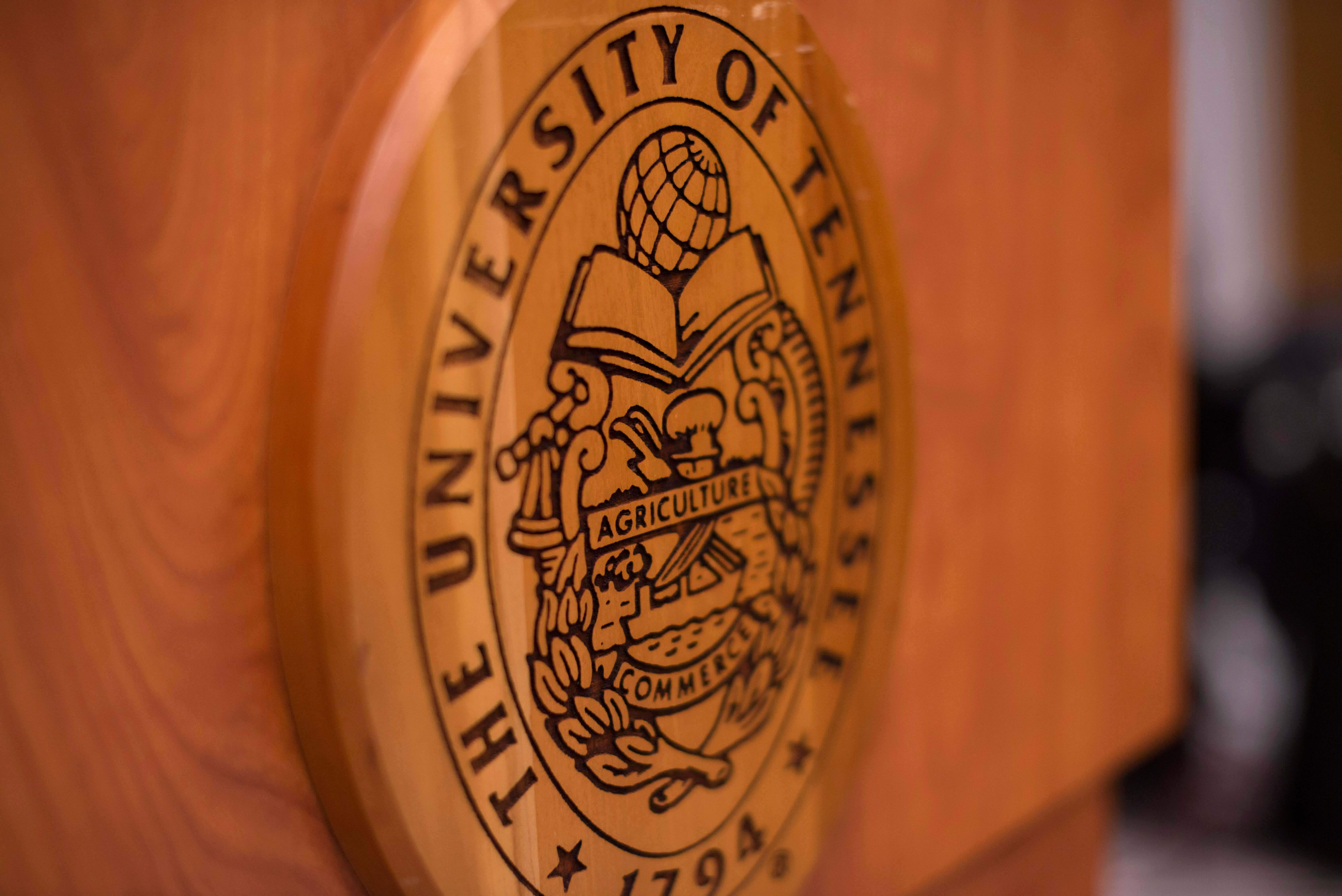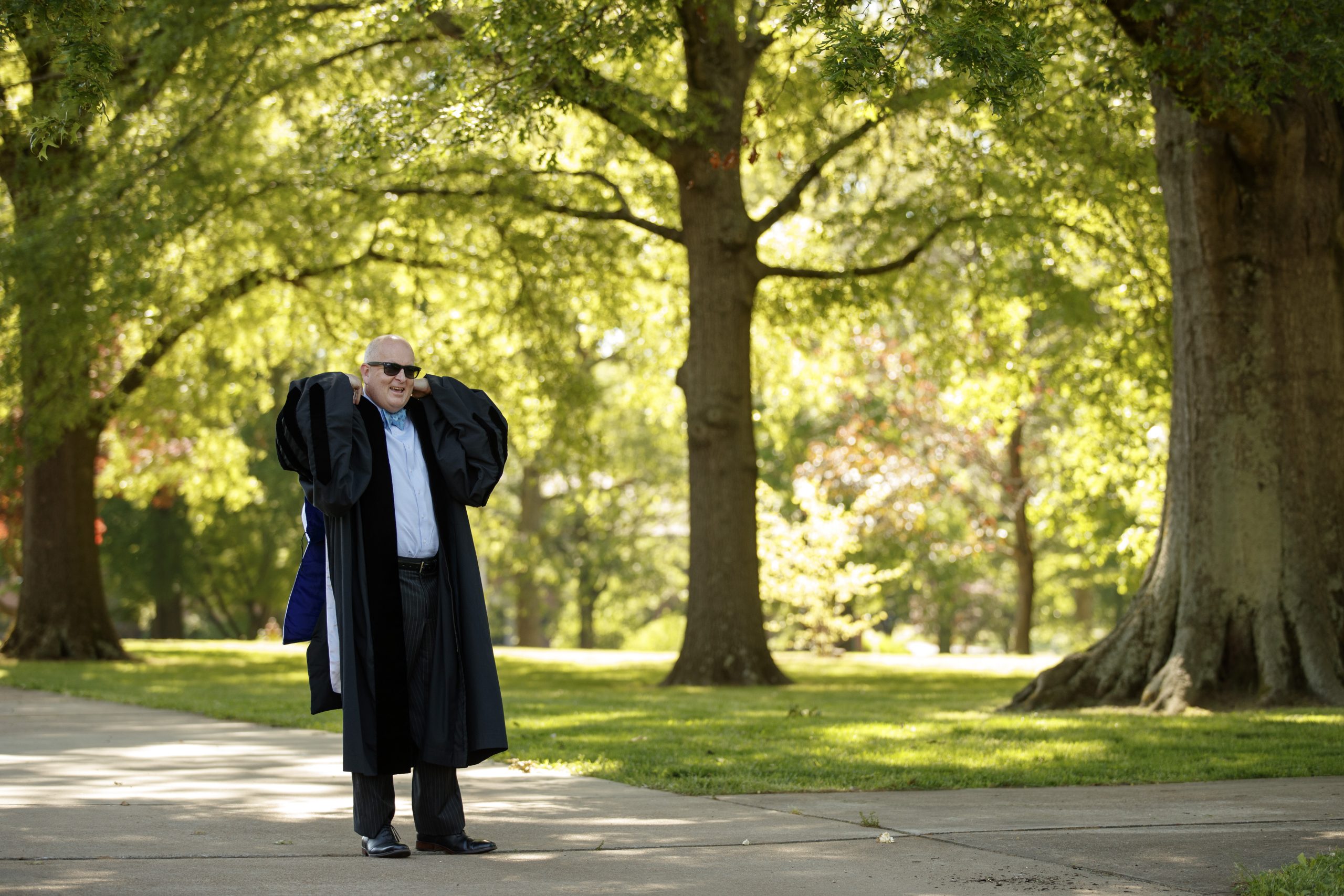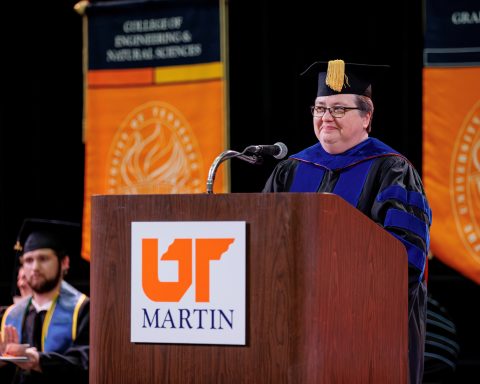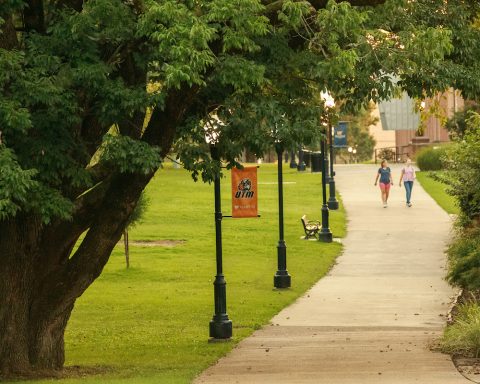The University of Tennessee Board of Trustees celebrated new enrollment records as well as the safety of its campuses during discussions of the ongoing impact of COVID-19 during its meetings Oct. 22-23.
Board members met virtually in committees on Thursday and then as a full board on Friday. UT Board of Trustees Chair John Compton praised the work by the system and campuses for the strong enrollment across the system, the university’s financial strength despite economic impacts due to COVID-19 and the efforts of the campuses to keep their faculty, staff and students safe.
“We have had good efforts across all of the campuses, as well as assistance from the state and federal governments,” Compton said. “We’re able to get through this COVID situation just fine for right now.”
Part of that comes through increasing enrollment.
“I like records,” UT President Randy Boyd told trustees in his remarks. “And when it comes to enrollment, this year is full of new records.”
Records set this fall are:
- Overall enrollment across the system increased 1.9 percent to an all-time high of 52,559 students.
- More than 41,100 students enrolled as undergraduates.
- More than 8,800 first-year students enrolled.
- More than 11,300 students enrolled in graduate and professional schools.
- Not only are more students enrolling, Boyd also celebrated a record of more than 8,600 degrees conferred in 2020.
“Any time we can set a record, it’s great, but in these difficult times, it’s remarkable,” he said, while noting that enrollment declined 16 percent across the nation. “You are not defined by decisions you make when things are easy, but by when things are hard. I think we will look back at this as one of our finest hours.”
Boyd also celebrated the first enrolled UT Promise class, which netted more than 1,100 students and secured more than 1,400 mentors for the students.
“We’re excited about the first year’s success and we expect to build on this foundation to grow it in the future,” Boyd said.
Compton said the board is seeing the benefit of the work to increase enrollment and called the fall numbers terrific, especially as many universities across the nation saw enrollment fall this year.
“Our enrollment numbers are impressive and that is helping with the COVID financial impact,” he said.
Trustees also heard updates regarding the COVID-19 impact on campuses. From pivoting in the spring to move classes online to bringing students back to campus in the fall, Boyd said the University has remained strong through resilience, revival and resurgence. COVID-19 brought out the ingenuity among the faculty, staff and students, he said, and it made everyone better and stronger.
“2020 brought us an unprecedented, historic challenge, but together, we did it,” Boyd said. “I remain inspired by what we have accomplished in a year against considerable adversity. I am encouraged on what we will accomplish together as we continue moving forward to make this the greatest decade in the history of the University of Tennessee.”
Chief Financial Officer David Miller reported on the financial impact of the pandemic for the period of March through September. Results of the pandemic have decreased revenue in certain operations, increased some costs and also decreased some expenses. UT campuses had an operating budget impact of $94 million in lost revenue and COVID-19-related expenses, excluding those related to UT Knoxville athletics and special events. However, through federal and state grants, reduced expenditures and decreases in budgeted savings, the net impact is $9 million.
Miller noted UT Knoxville athletics forecast a total fiscal year impact of about $40 million and $13 million in special events. He stated that strategies are being developed to help offset athletic revenue losses. UT Knoxville Chancellor Donde Plowman said through across the board salary reductions and other cost saving measures, the expected athletics gap is $15.6 million. She said the gap could be handled through a campus loan to the athletic department and that the Southeastern Conference is also exploring options to support athletic departments.
Miller said the university would continue to see savings in some areas, especially in travel, conferences and events as those continue to be on hold.
Trustees also approved a state appropriations budget request of more than $20 million for the Fiscal Year 2021-22 Operating Budget for improvement funding for specialized units such as the Health Science Center, Institute of Agriculture, Space Institute, Institute for Public Service and System administration. Miller reminded trustees that those units do not have the same funding streams as the campuses do. The money would go toward hiring new extension agents to work in distressed rural counties as well as increased operating funds for all units.
Trustees reaffirmed the University of Tennessee diversity statement to align with the strategic plan and to support UT’s efforts to promote diversity and inclusion. It also included one change: to add alumni to the statement. The board originally approved the statement in 2014.
In presenting about the statement, Chief Human Resources Officer Brian Dickens shared about diversity of students, faculty and staff. Almost 20% of students across the system identify as Asian, Black, Hispanic or multi-racial while almost 24% of faculty and staff identify as such. The state demographics show about 27% of the workforce identify as a minority group while about 36% of high school juniors and seniors do.
“This representation metric provides empirical data points for us to set appropriate accountability measures for ensuring our student and workforce populations grow commensurate with our strong commitment to our strategic diversity and inclusive excellence agenda,” Dickens said.
Boyd also announced the establishment of the Substance Misuse and Addiction Resource for Tennessee (SMART) Policy Network, which grew out of the 2019 Summit for Opioid Abuse Response. SMART will provide user-friendly data on substance misuse prevention as well as recover and treatment metrics. It also will provide evidence on best practices for treating addiction.
“The network aims to become a valued resource for data-driven, evidence-based, non-partisan and actionable policy information on substance misuse and addiction for the state of Tennessee,” he said.
Trustees also heard:
- UT System workforce update
- Report on Periodic Post-Tenure Performance Review
- Annual report on intercollegiate athletic programs
- Annual reports from UT Foundation, UT Chattanooga Foundation
For more information, contact Melissa Tindell, UT System director of communications, at mtindell@tennessee.edu.
###











